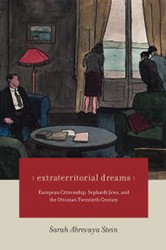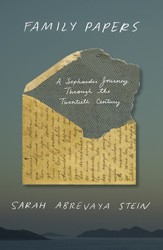Examining a neglected but important topic, based on extensive archival research and published studies, Sarah Abrevaya Stein has produced a scholarly yet very readable study on a relatively neglected Jewish community: the Jews of the Algerian Sahara, most of whom lived in Ghardaia in the Mzab Valley of southern Algeria. The study focuses on the French colonial period, lasting from the military occupation of the region in 1882 until Algeria’s independence in 1962, and on the background of the previous periods and the fate of the Mzabi Jews following Algerian independence. Living for most of this period under military rule, most of the Mzabi Jews, until the very end of French rule, did not receive French citizenship based on the Crémieux decree of 1870 as did the Jews of northern Algeria. Instead, these Jews were regarded as indigenous subjects governed by local civil status laws, recognizing the legitimacy of Mosaic laws, but with their political rights radically curtailed. The study begins and ends in the 1960s, when a French official and a local Jew retroactively assembled a civil register for Mzabi Jews based on rabbinical registers, documenting the Jewish presence in the Mzab upon the French occupation, and detailing connections to individual Mzabi Jews in the 1960s. This was done in order to provide these Jews with French citizenship, to enable them to emigrate and settle in France.
The bulk of the study covers the period until the 1960s. Stein’s deep scholarship and inquisitive mind are evident throughout. She thoroughly examines what was considered the definitive study on the Mzabi Jews: Lloyd Cabot Briggs and Lorina Lami Guède’s 1964 publication No More for Ever: a Saharan Jewish Town, detailing the background of its authors, the motives behind the study and the research methods used — some of which Stein finds questionable. Additional chapters examine the special legal status of the Saharan Jewish and Muslim population under military rule; social, economic and cultural conditions; anti-Semitism; the effect of World War II on the region, and how the discovery of oil and the Algerian War of Independence affected the region and its Jews. Photographs from the various archives and some taken by the author further strengthen her arguments.
Thanks to the huge amount of data Stein used and her excellent analysis, this is a groundbreaking study of importance for Jewish studies, North African studies, and French colonialism. Bibliography, index, maps, notes, photographs.
Related content:





